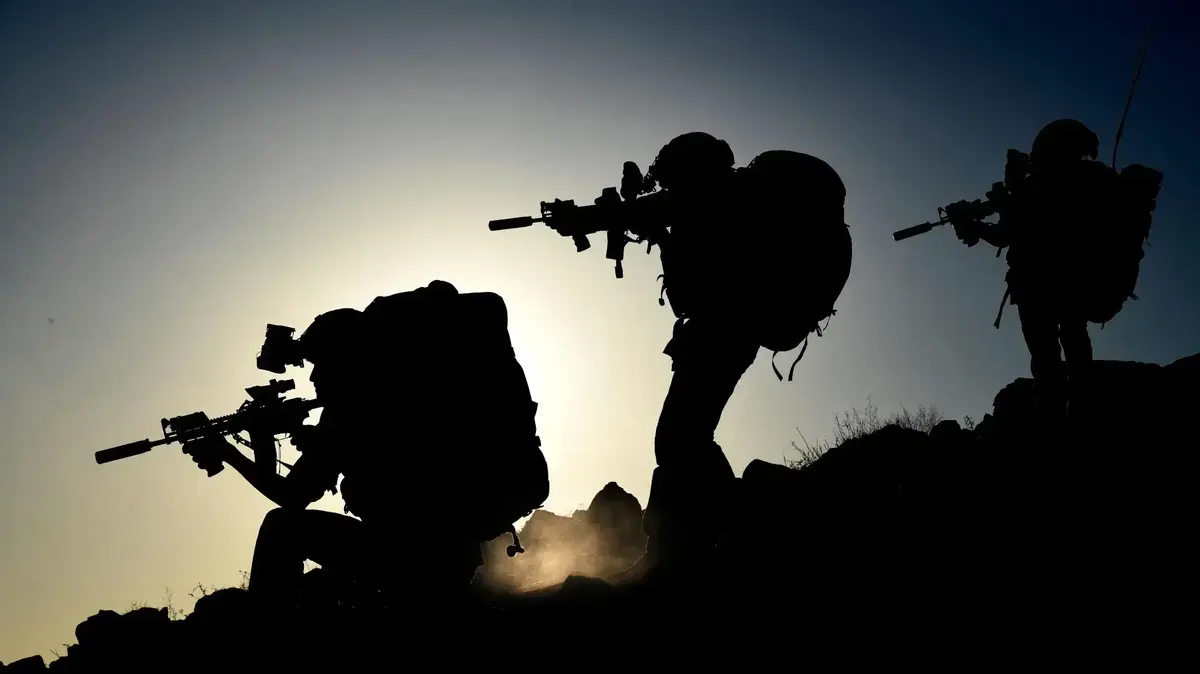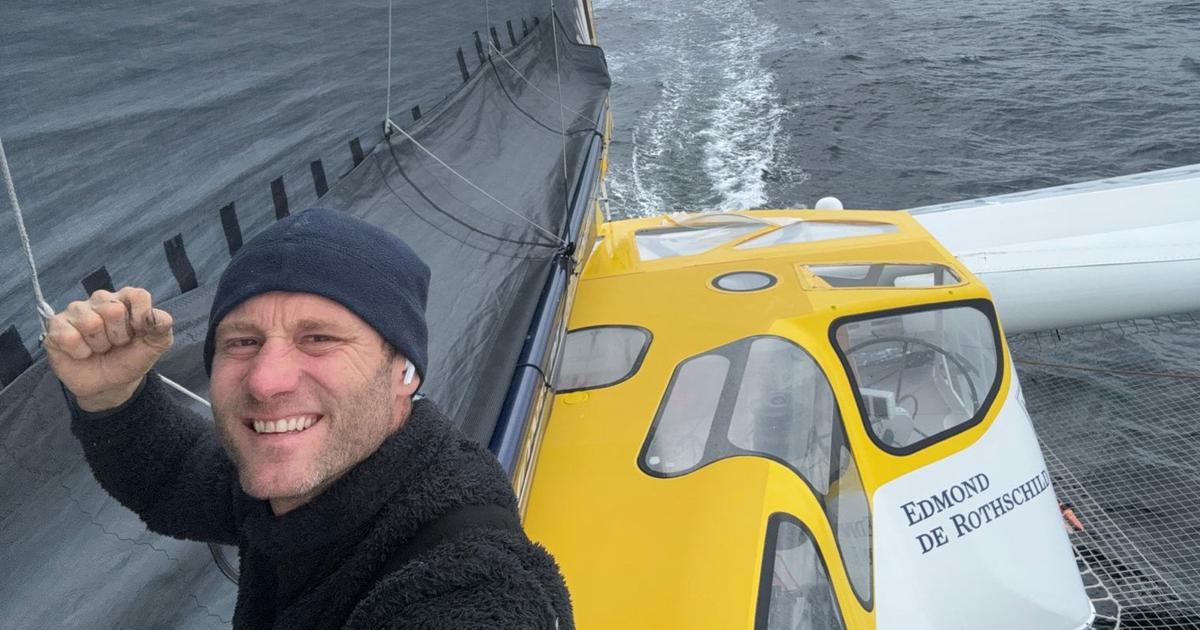How to tame a tiger: The difficult dilemma of special units after the disaster in Walnut
For years, the patrols have been given a free hand to allow permissive conduct in the areas of discipline - with the results on the ground covering the bar.
The death of the commanders of cruises in the guerrilla unit brings the IDF to a crossroads in relation to the problematic norms that may lead to similar disasters. "The warning signs are clear, but the senior officer allows it."
Amir Bohbot
12/02/2022
Saturday, 12 February 2022, 09:30 Updated: 09:31
Share on Facebook
Share on WhatsApp
Share on Twitter
Share on Email
Share on general
Comments
Comments
It was a nerve-wracking night.
The kind of nights when the attention of the chief of staff and the head of the IDF's intelligence department reaches its peak and is concentrated in one place.
Every second counts and at any moment an event could erupt that would complicate the State of Israel.
Therefore every decision and every little detail has a fateful meaning.
This time they were special forces from the IDF Special Operations Unit (MM) that operated on November 11, 2018 in the heart of the city of Khan Yunis in the Gaza Strip.
While the force in the truck was on duty, the force stopped at a Hamas checkpoint.
"If there is one thing that is clear in the Gaza Strip, it is that everyone knows everyone. This is neither Lebanon nor Syria. You can not mix everyone easily," said a former veteran intelligence officer, an expert on special operations whose many wrinkles adorn his forehead, "and if your cover version does not "Sitting on concrete, on stable ground, it is easy to shake it and then comes the danger. Every detail, every word, dialect, dress, and demeanor, must be perfect. There is no other way in Gaza. Otherwise you are exposed."
At this point, the eyes of Chief of Staff Gadi Izenkot, the head of the Armed Forces, Maj. Gen. Tamir Heiman, looked at the screens.
Drama takes place at the checkpoint and they are not aware of it.
More on Walla!
How important is the image for personal success?
Walla!
In collaboration with Maya Notkovich
The vehicle used by the special force in Khan Yunis (Photo: screenshot, -)
The version of the special force did not convince Hamas operatives and the checkpoint was reached by none other than Nur Baraka, commander of the East Khan Yunis Battalion in Hamas' military wing.
Baraka, accompanied by security guards, a very tough and charismatic figure, from a very respectable family.
During the interrogation in the field the details he received do not connect and he loses patience.
As soon as the special force realizes that its chances of persuasion are nil, the fighters decide to turn the bowl over and they open fire from which Lt. Col. M., one of the most excellent and brave IDF fighters in the last decade, has been killed in a series of hair-raising operations in enemy countries.
For his work, the late Lt. Col. M. was decorated with the Chief of Staff's Salary after his death.
In those moments, the pit in the Kirya in Tel Aviv realizes that the special operation has become complicated, the lives of all the fighters are in clear and immediate danger and they promote a heroic rescue operation led by the head of the Air Force's attack department, Col. D. Col. D. To pave the way for the special forces that managed to get to the escape point where the storming helicopter from Squadron 118 and the force of the 669th Squadron landed under heavy fire. "It was a beautiful time for the Israeli Air Force. "One of the officers involved was involved in the details of the special
operation."
When the dust settled and the investigations began, the abyss was discovered.
Skeleton unit in training (Photo: Reuven Castro)
"There was a warrior who said to me, 'I kill terrorists, why was it important that I go with a shirt inside my pants?'"
"If you tilt your ear in the direction of the IDF's Intelligence Division and concentrate well, you can still hear the echoes of the rift created after the special operation that failed in Khan Yunis," said a senior officer who was exposed to the details of the investigation. And to the Armed Forces but to the entire IDF. It started with operational discipline. And perhaps it is incorrect to use this term: discipline, because it touches on many details and does not really explain the nature of the problems discovered. Basic processes in daily procedures. Corner circles. Arrogance. They were really taken care of. There were figures in the headquarters who did what was right for them and not what they were taught to do. There are procedures and there are orders. And most importantly: there is no disconnect between operations and routine discipline.
I expected that they would talk about it so that such a failure would not be repeated in any other unit. "
The senior officer who deployed special forces throughout his years of military service explained that commanders maintain a constant tension in operating quality fighters.
"There is a tension between what you want as a commander to do and the commands. The secret to success? Although agility and flexibility have to be produced there are basic commands that must not be given up. "I explained that there is no difference between routine and operations. Then there was a war to demand the same level of discipline and order not only from the special fighters but also from the commanders."
Dealing with the failed operation in Khan Yunis shook the army because the forces and the special headquarters and everyone who supported them were supposed to be the right-wing marker of the IDF. From them you will see and do.
"What happened to Walnut - is an earthquake"
The investigations left everyone speechless because of the glitches and errors that were exposed.
Kochavi led the process of rehabilitating the MM system. Some of the officers were shown out the door and some were returned from citizenship.
Everyone knows that the rehabilitation process is not over, because instead of dealing with the core of the problems, they are dealing with the shell.
I will not expand too much because these are pillars of security.
And if I thought it was over, there were a few events that lit a red light for me about what's going on in the special units in recent years until the event came in the Walnut unit.
I realized I was not wrong.
What happened in the nut is an earthquake.
"In many ways and it affects the entire IDF. From the General Staff and below. I will not expand my opinion on the containing punishment. Kochavi should have already understood at the Khan Yunis incident that he is in trouble and carry out a lesson-learning process for the whole army."
Last month, a team commander in the Egoz unit who went on an independent patrol to search the IDF fire areas in Nabi Musa for a night-vision device stolen without means of communication and without updating any of his commanders, opened fire and killed two platoon commanders from the unit who went on an independent patrol themselves. A series of failures were discovered that included commands and procedures
. Norman Dixon, a lecturer in psychology and author of the book "The Psychology of Militarism in the Army," stated that military militarism, whatever its other causes, indicates a failure in leadership. .
Kochavi had to understand that he was in trouble.
Commanders of cruises killed in the incident (Photo: Photo Processing, IDF Spokesman)
On the constant tension in command, he wrote, "They are forced to fulfill roles that do not reconcile with each other. They are supposed to show initiative and still stay within the commands. They must be aggressive, but not be disciplined. ".
In addition he warned the commanders, "Never ask your men to do what you are unable to do yourself."
But the real enemy of the special units in the IDF is mainly the enthusiasm, recklessness, blind and uncritical dedication to any task, even the most stupid. In a creative and enterprising approach, however, Dixon stated that there is an interpretation because you must always be willing to think of and offer an original course of action, but the gap between training and operations quickly blurs if clear boundaries are not set. , Dixon added.
The former deputy commander of the patrol and now a reserve officer in an elite unit explained what did not surprise him in the Walnut unit disaster, "It was clear in Egoz's story that commanders insist night after night on the mission. Even if they deviate from the orders. The commanders took responsibility. Who were officers in a course for battalion commanders about a year and a half ago.
Do not tell me that what happened in the nut started in the nut.
Definately not.
There is a problem of horizontal discipline here. "
The deputy commander of the patrol tried to describe in what reality fighters in a special unit live," there is a different organizational culture in particular.
Poika inside the encampment.
It's an expression of atmosphere, people you're having a hard time getting into a world of discipline at some point.
If you want to achieve one thing (initiative, creativity AB) you have to give up something else. "
Fighter in the Cherry unit in operational activity (Photo: IDF Spokesman)
"Some commanders say, 'I'm willing to give up some of the discipline, because the result at the operational end will be something that cannot be achieved in any other way. You did not buy that right."
In the past year there have been a series of events that connect according to all the officers interviewed for the article to what happened in Walnut and point to a problem of discipline and order in the special units.
Injury of a platoon commander in Cherry and his connection in an arrest operation in Ya'bad from the fire of his fighters, accidents in Squadron 13 in the last year that included amputating a female soldier's fingers at the unit base, two vessels colliding with the pier and miraculously no soldiers are killed. There was a theft of weapons at the end of training or arrival for approval of plans on civilian clothes.
"There are clear signs of indiscipline and they start with the small details. The most senior officer in the IDF is aware of it and allows it.
It starts with external appearances like brushing and shaving, on a missile ship for example there is a parade every morning at 06:00 that starts with a salute to the flag, it includes walking with mountain shoes of some kind, wearing half uniforms and half civilian clothes, some even dare to walk only on civilians .
Some commanders say: 'I am willing to give up some of the discipline, because the result at the operational end will be something that cannot be achieved in any other way.
You did not buy this right.
And what about glitches in Squadron 13 in an operational activity that no one knows about?
And there are operational glitches.
This right is granted to the few.
For consequential people.
One can argue about that but that's what happens in special units.
The message is simple: friends.
Is your solution to getting out of discipline problems?
It's 10 times harder to work than you are today.
As for me, do not go home. "
"If you come on civilians for a combat procedure - you are an amateur"
On the sequence of events in Khan Yunis, the officer said, "Regarding the failure in Khan Yunis, why is there a battle procedure? It is clear that in the moment of truth nothing of what you planned is tangible. So you ask yourself then why did you plan? "In their surrounding speech, you say in other words you are not really ready for real time. If you come on civilians for a combat procedure it means you have not set a time to put on a uniform. You are an amateur. By specialty standard it is about 27 seconds."
Discipline and order problems are the second thread in the IDF, and according to the officers, there has been an accumulation of alarming incidents in recent months that indicate the conduct of the entire army. The project called 'Genesis Seder' visited dozens of special units, there were recommendations for rejections and comments, but the spread of the corona made it difficult to raise reserves and visit all the units, so the process was halted.
One of the closest advisers to the Chief of Staff is Brigadier General Dr. Hadas Minka Brand, commander of the IDF's Behavioral Sciences Division in charge of selection, organizational consulting, leadership development, evaluation of commanders and behavioral science research.
In 2013 she wrote an article for a booklet called "Command and Challenge Challenges, on the lack of personal example and the danger of double standards."
In the article, Dr. Minka Brand wrote that “a commander who allows himself to behave differently from the way he demands of his soldiers creates a permissive atmosphere and lack of authority in the unit.
"Because the soldiers understand that there is a 'declared' and there is an 'actual reality', there is legitimacy for deviant behavior and it is not known how the soldiers will behave as a result."
The chief of staff will soon, for the first time in years, impose a training curfew for a week. As discovered in the MM array or in the nut unit.
As of this writing, the Walnut Unit has not yet returned to operational activity.
news
Army and Security
Tags
Walnut unit
IDF
Spring Stars









